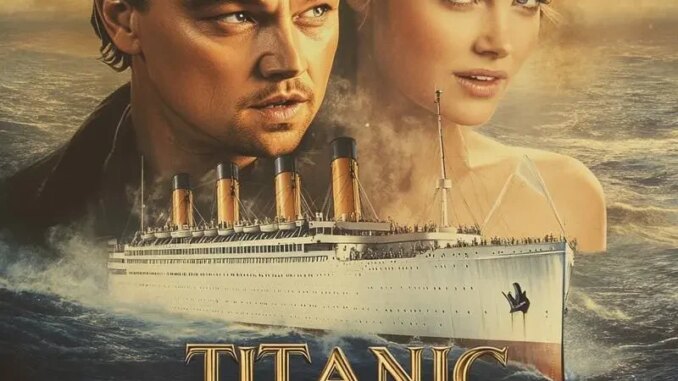
Titanic 2: The Return of Jack – Viral Hoax or Blockbuster Dream?
The haunting melody of a recorder, a windswept Leonardo DiCaprio clinging precariously to a railing, a heart-wrenching farewell in the icy Atlantic. The original Titanic cemented itself in cinematic history, a tragedy elevated to operatic heights, its characters, particularly Jack Dawson, etched into the collective consciousness. So, the question of a Titanic 2: The Return of Jack isn’t just about sequels; it’s about tampering with a cultural monument. Is it a preposterous viral hoax, a ridiculous concept destined for mockery, or is there, hidden beneath the layers of absurdity, a glimmer of potential for a genuinely compelling, blockbuster dream?
The knee-jerk reaction to the very suggestion of a sequel is, rightfully, scorn. Jack Dawson is dead. He is frozen at the bottom of the ocean, a poignant symbol of sacrifice and the unfairness of fate. To resurrect him, even with the most outlandish science fiction or fantasy contrivances, feels inherently disrespectful. It's akin to rewriting historical tragedies to provide a happy ending, diminishing the real-life pain and suffering that inspired the original. The internet, ever eager to sniff out ludicrous concepts, latches onto the idea of Jack’s return with a morbid glee, spawning memes and parodies that highlight the inherent ridiculousness. He’s thawed out after being cryogenically frozen! He’s a time traveler sent to prevent the disaster! The very premise invites ridicule, solidifying its status as a viral hoax, a fleeting online joke fueled by shock value and the unshakeable legacy of the original film.
Furthermore, the Titanic story is intrinsically tied to its historical grounding. The tragedy resonated because it was rooted in reality. A fictional sequel, regardless of its narrative ingenuity, would inevitably dilute this connection. We lose the historical context, the stark class divisions, the hubris of man versus the unyielding power of nature. It becomes just another disaster movie, devoid of the emotional weight and cultural significance that made the original a phenomenon. This inherent loss of gravitas pushes the sequel further into the realm of improbable blockbuster, a spectacle built on cheap thrills and nostalgia, rather than genuine artistic merit.
However, dismissing the idea entirely might be premature. While a direct resurrection of Jack Dawson is undeniably absurd, exploring the legacy of the Titanic, the impact of the tragedy on future generations, or even the discovery of artifacts and forgotten stories from the wreckage could provide a fertile ground for a sequel that honors the original without resorting to outlandish plot devices. Imagine a film focusing on the descendants of the survivors, grappling with the inherited trauma and the weight of their ancestors' experiences. Or a documentary-style exploration of the modern-day exploration of the Titanic wreckage, revealing new insights and untold stories. These approaches could tap into the enduring fascination with the Titanic while avoiding the pitfall of rewriting its history.
Moreover, the very notion of Titanic 2 highlights the enduring power of the original. The film's ability to provoke such strong reactions, even decades later, speaks volumes about its cultural impact. We are emotionally invested in the characters, the story, and the tragedy itself. A sequel, even a poorly conceived one, sparks conversations, ignites debates, and forces us to confront our own relationship with this iconic film. Perhaps the real value lies not in the potential for a blockbuster sequel, but in the renewed appreciation and critical examination of the original that it inspires.
In conclusion, while the Titanic 2: The Return of Jack scenario is overwhelmingly a viral hoax, a concept fueled by internet humor and a thirst for the absurd, it shouldn't be entirely dismissed. The inherent absurdity points to the sacred ground the original film holds in our collective memory. While a direct resurrection of Jack Dawson would be a cinematic sacrilege, exploring the enduring legacy of the Titanic, the impact of the tragedy on future generations, or even the ongoing exploration of the wreckage, could provide fertile ground for a sequel that honors the original without resorting to fantastical contrivances. The key lies in respecting the original's historical context and emotional weight, allowing the tragedy to speak for itself, rather than attempting to rewrite its ending for a superficial blockbuster dream. Ultimately, the enduring power of the Titanic ensures that the debate, and the possibility, however improbable, of a sequel, will continue to drift on, much like the wreckage itself, deep beneath the waves.